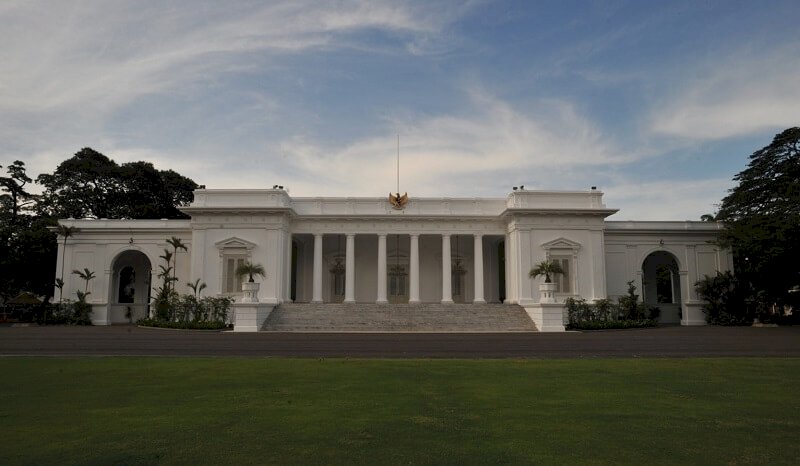

Electing Progressive Leaders
/ Opini
A progressive leader will not be daunted by any difficult situation.
Arif Giyanto
Chairman of Pandiva
The 2024 elections are getting closer. What kind of leader would you choose? Of course, leaders who can understand and protect you are also the guardians of your future. Leaders like this cannot possibly be born from existing situations. They continue to learn to improve themselves and adapt to change.
If we discuss leadership, then what we are discussing is not just elections; this cannot be separated from education. Good leadership is born and grows from quality education. Quality education can also encourage the development of a quality political system and then the holding of democratic elections.
You need to get to know Francis Wayland Parker (October 9, 1837—March 2, 1902), an American Civil War veteran with the rank of Colonel. In 1901, he founded a school in Lincoln Park, with the full support of Anita McCormick Blaine. The educational philosophy taught by Parker aims to support the growth and development of students by making them aware and responsive to the basic needs of society.[1]
Parker integrates the curriculum, triggering a desire for lifelong learning and making schools more interesting and meaningful. He believes, allowing students to learn through real experience is more important than just memorizing. The school encourages students to communicate, participate, and collaborate in diverse student communities with each other and their teachers.
By a great philosopher and colleague, John Dewey, Parker was called the 'Father of Progressive Education'. Parker is a pioneer of the progressive school movement in the United States. He believes education must include the complete development of the individual, be it mental, physical, or moral.
Regardless of the pros and cons, however, progressive education is considered capable of delivering students to be aware and responsive to the basic needs of society. Student qualifications like this are what will when the time comes, will lead them to an important term, 'progressive leadership'.
Five Important Things
The characteristics of progressive leadership can be seen from the following five things.[2] First, progressive leadership upholds an example, not just articulation. The leader will get the rights and respect by realizing the wishes of the people they lead.
Second, progressive leadership can bring up the strong desire of others to be part of the vision. Third, progressive leadership has a strong desire to stay ahead of the curve. For this purpose, they regularly do things that have not been done by others and or do things that are different from others.
Fourth, progressive leadership enables others to act by creating an environment that is capable and trusting of each other, based on collaboration and accountability. This allows people who are guided to be innovative, even improvise, if possible, without fear of being reprimanded. Finally, but no less important, progressive leaders empathize with those who are led through recognition and celebration of success.
Learn from Kiai Sahal
According to Kiai Sahal Mahfudh[3] the best ummah are productive people. They are people who are sensitive to the needs of the environment, master information, possessing high organizational competence and creativity, to create jobs and grow broad economic insights.[4]
Kiai Sahal encourages Muslims to become the best people who can provide maximum benefits to others to create a transformative Islamic civilization towards the creation of a prosperous, just, and progressive Muslim society.[5]
In principle, progressive leadership is leadership that is aware and responsive to the basic needs of society. Progressive leadership does not move like an untouched ‘ivory tower’, but becomes one with the problems of the people they lead.
For this reason, a progressive leader must have an attitude that is not easily impressed (gumunan), not easy to regret (getunan), not easily surprised (kagetan), and not spoiled (aleman). That way, a progressive leader will not be daunted by any difficult situation. As Sunan Kalijaga[6] (1450-1513) once said.
[1] https://www.fwparker.org/about/history. Accessed January 17, 2024.
[2] Processed from Modise, Oitshepile MmaB (ed.). 2015. Cases on Leadership in Adult Education. Pennsylvania: IGI Global. p. 54-55.
[3] Chairperson of the Indonesian Ulema Council (MUI) 2000-2014 and Rais Aam Syuriah, Executive Board of Nahdlatul Ulama (NU) from 1999 to 2014.
[4] Asmani, Jamal Ma’mur. 2019. Tasawuf Sosial KH. MA. Sahal Mahfudh. Jakarta: PT Elex Media Komputindo. p. 176.
[5] ibid.
[6] One important religious figure in the history of Islam in Indonesia is part of a board of trustees named ‘Wali Songo’.


